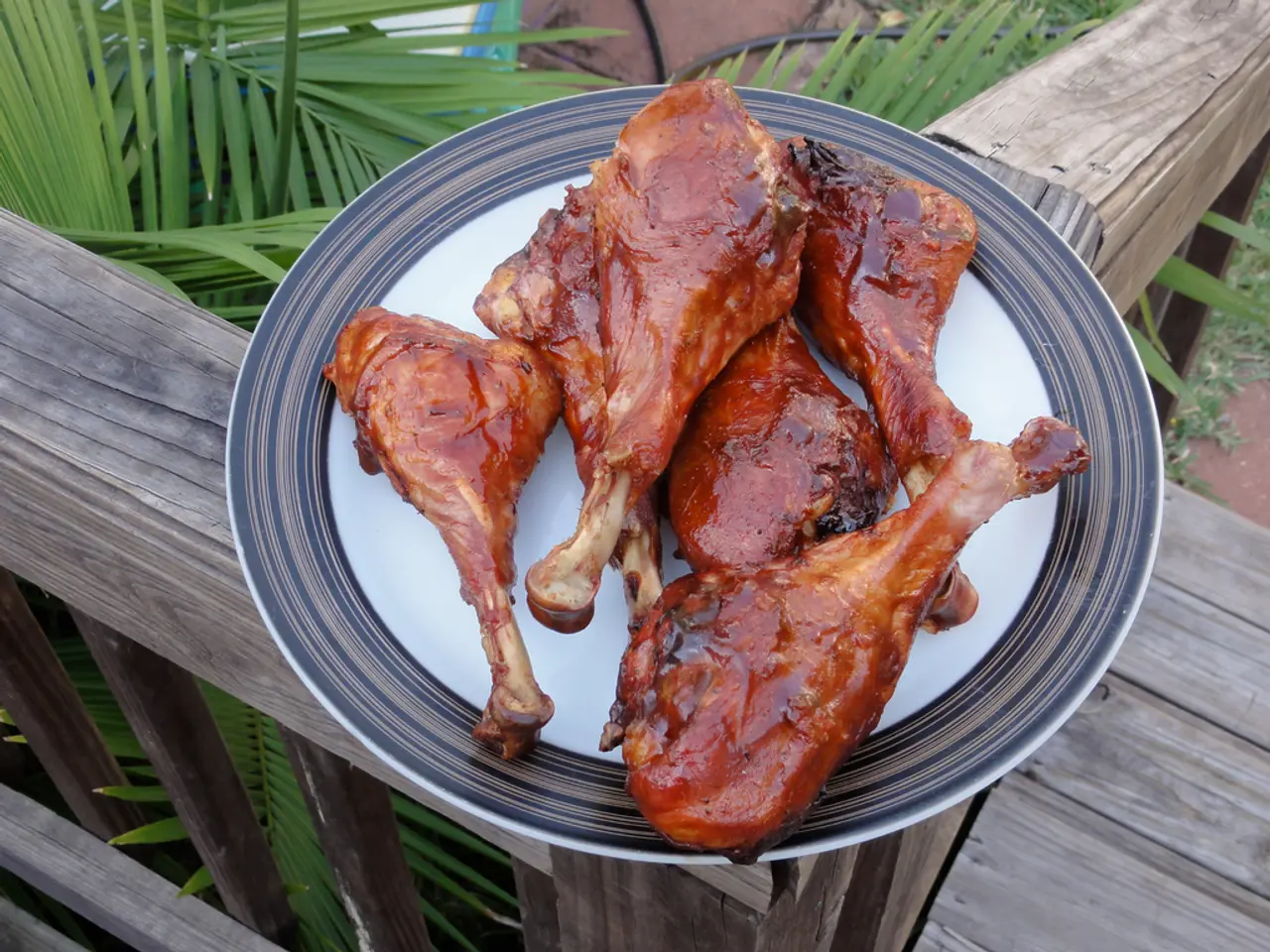Farmers in Scotland express concern over potential trade agreements permitting the import of meat products
*The Scottish Meat Industry Facing potential Threats***
Here's the scoop, mate. Scotland's meat industry is starting to feel the heat from imports creeping in from countries that have palsy-walsied with the UK on some trade deals. Quality Meat Scotland (QMS) is shoutin' loud about this, and they're worryin' that imports from places like New Zealand, Australia, and Brazil could send the Scottish food sector straight to the koshers.
On the opening day of the Royal Highland Show at Ingliston, Edinburgh, farming unions are saying that trade deals are openin' up loads of new markets for many in the sector. But QMS is urgin' politicians to take a step back and consider the long-term impacts of multiple deals instead of considerin' each one in isolation.
Now, here's the lowdown on why they're so riled up. Scottish farmers have been keepin' up world-class standards when it comes to animal welfare, climate action, and food quality. However, imported products often don't measure up, and that could damage consumer trust in the market and mess with the reputation of Scottish meat production. Plus, there's concern that the environmental impact of importin' meat from places far and wide could conflict with Scotland’s climate goals.
Research by QMS shows that 90% of shoppers still prefer Scottish meat over imported stuff, even if it's one-third more expensive. But that preference is slippin', thanks to increased availability and price competitiveness of imports. This "creepage" can make it more challenging for Scottish meat to hold onto its spot on supermarket shelves, especially in own-label ranges.
The National Farmers Union Scotland (NFUS) is hoppin' mad about all this. They're callin' for stronger actions, like requirein' mandatory country-of-origin labellin' and implementin' a "Scottish first" sourcin' policy in supermarkets to prioritize local produce whenever it's available. They also think it's high time to ensure fair pricing and transparency so that farmers get a fair whack of the retail prices, keepin' local meat production afloat.
There are concerns that recent trade deals, like the one with the Yanks, could increase beef competition for UK and Scottish farmers. While the UK government claims that imports need to meet food safety standards, there's worry that those standards could be compromised over time due to trade pressures. Trade agreements with countries like New Zealand and Australia could also add more imported meat to the UK market, potentially fryin' the competition for Scottish producers.
To sum up, multiple trade deals could:
- Jeopardize the economic sustainability of the Scottish meat industry by exposin' it to cheaper imports that might not meet local animal welfare, environmental, and food quality standards.
- Erode consumer preference for Scottish meat by increasin' the presence of imports on supermarket shelves.
- Cause enviromental concerns due to global shipping of meat products.
- Incite calls for stronger government and retailer policies to protect local producers through sourcin' priorities, labellin', and fair pricing measures.
All told, these factors might make for a pretty bumpy road ahead for the future of Scotland’s meat sector in the face of evolving global trade.
- The concern for the Scottish meat industry extends beyond just animal welfare and climate action, as the influx of cheaper imported meats from countries like New Zealand, Australia, and Brazil could potentially affect the financial stability of local businesses.
- In light of the potential threat posed by trade deals, organizations like Quality Meat Scotland and the National Farmers Union Scotland are advocating for stronger government policies, such as mandatory country-of-origin labeling and prioritizing local produce in supermarkets, to financially support and protect the Scottish meat industry.




